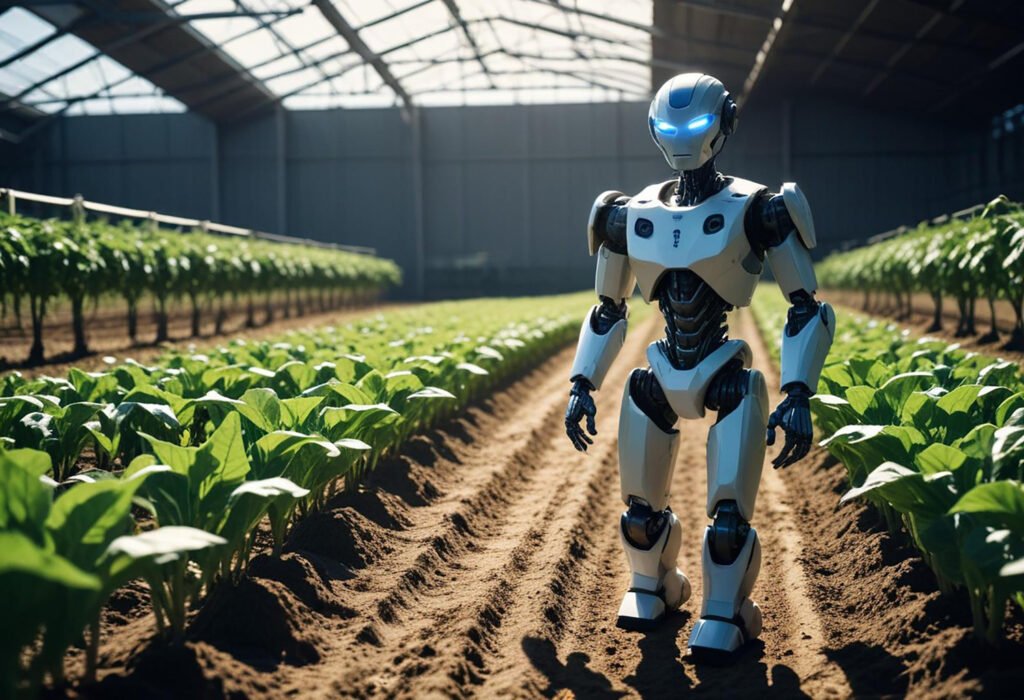As we look toward the future, the potential advancements in artificial intelligence (AI) by 2050 promise to revolutionize our world in unprecedented ways. Here’s a glimpse into what we might expect:

1. Exponential Growth in AI Capabilities
AI has been progressing at an astonishing rate. By 2050, we can anticipate AI systems surpassing human intelligence in many domains. These systems will perform complex computations and exhibit advanced problem-solving abilities, creativity, and emotional intelligence.
2. AI in Everyday Life
AI will become deeply integrated into our daily lives. From personalized virtual assistants that understand and anticipate our needs to smart homes that manage themselves, AI will streamline and enhance our daily routines. Imagine refrigerators that automatically order groceries or cars that drive us safely and efficiently.
3. Transformations in Healthcare
The healthcare sector will likely see significant advancements due to AI. Predictive analytics could foresee health issues before they arise, enabling preventative care. AI-driven diagnostics and personalized medicine will improve treatment accuracy and efficacy, potentially increasing life expectancy and quality of life.
4. Educational Evolution
AI will revolutionize education by providing personalized learning experiences. Adaptive learning platforms will tailor educational content to individual student’s needs, helping them learn at their own pace and style. This will make education more accessible and effective worldwide.
5. AI and the Workforce
The job market will undergo substantial changes. While some jobs may become obsolete, new roles requiring advanced AI skills will emerge. Humans and AI will collaborate closely, with AI handling repetitive tasks and humans focusing on creative and strategic work. This shift will necessitate transforming education and training systems to prepare the workforce for future demands.
6. Ethical and Regulatory Challenges
With great power comes great responsibility. The ethical implications of advanced AI will be a significant concern. Ensuring AI is used for the benefit of humanity, avoiding biases, and protecting privacy will be critical. Governments and organizations must develop robust frameworks to regulate AI development and deployment.
7. Artificial General Intelligence (AGI)
One of the most anticipated milestones is the development of Artificial General Intelligence (AGI) – AI that can understand, learn, and apply knowledge across various tasks, much like a human. Achieving AGI will open up new possibilities and challenges, including ethical considerations and control mechanisms.
8. Global Collaboration
The future of AI will likely involve global collaboration. Countries and organizations worldwide must work together to share knowledge, establish standards, and address the global challenges posed by advanced AI.
9. AI in Creative Fields
AI will also make significant strides in creative fields such as art, music, and literature. AI-generated content will push the boundaries of creativity, leading to new forms of artistic expression and collaboration between humans and machines.
10. Enhanced Human Capabilities
Finally, AI could enhance human capabilities through brain-computer interfaces and other technologies. These advancements may enable humans to augment their cognitive and physical abilities, leading to a new era of human evolution.
Conclusion
The potential advancements in AI by 2050 are both exciting and challenging. As we move forward, it’s crucial to guide the development of AI in a way that maximizes its benefits while addressing ethical and societal concerns. The future with AI holds immense promise, and with careful consideration and collaboration, we can ensure it leads to a better world for all.